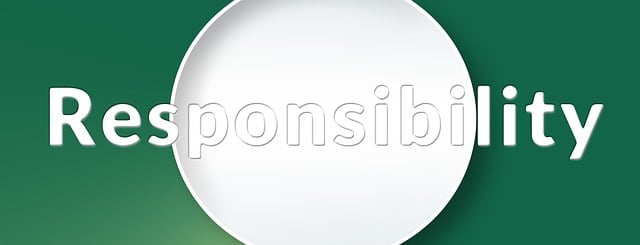Debt consolidation loans combine multiple high-interest debts into one lower-rate loan, simplifying payments and saving money. Options include unsecured and secured loans, with professional financial advice crucial for tailored strategies. For UK individuals, understanding secured/unsecured distinctions and researching reputable lenders is vital to avoid scams. Effective debt consolidation involves addressing spending habits and long-term financial goals, offering relief from debt burdens.
Debt consolidation is a powerful tool for managing overwhelming debt. If you’re burdened by multiple loans, understanding debt consolidation loans can be your first step towards financial freedom. This comprehensive guide offers valuable debt consolidation financial advice, exploring various types of consolidation options. From unsecured to secured loans and personal loan strategies, we dissect the benefits and drawbacks of each approach, empowering you to make an informed decision for a seamless financial transition.
- Understanding Debt Consolidation Loans
- Types of Debt Consolidation Options
- Unsecured vs Secured Loans
- Personal Loans for Consolidation
- Benefits and Drawbacks of Each Type
- Choosing the Best Consolidation Strategy
Understanding Debt Consolidation Loans

Debt consolidation loans offer a strategic approach to managing multiple debts by combining them into one single loan with a lower interest rate. This financial advice is tailored for individuals grappling with various debts, providing a clearer path to repayment and potential savings on interest expenses. By consolidating, borrowers can simplify their payment structure, making it easier to budget and ultimately pay off their debts more efficiently.
Understanding debt consolidation tools and resources is crucial, especially for young adults navigating their financial journey. Unlike bankruptcy, which involves legal processes and permanent credit impacts, debt consolidation offers a chance to restore financial health over time. It’s important to weigh the options carefully, considering factors like interest rates, repayment terms, and long-term benefits before choosing a debt consolidation strategy that aligns with individual financial goals and circumstances.
Types of Debt Consolidation Options

When considering debt consolidation, several options are available depending on your financial situation and goals. Each type offers unique advantages and is designed to help individuals gain control over their debts. A common choice is debt consolidation loans, which bundle multiple high-interest debts into a single loan with a lower interest rate. This approach simplifies repayment by reducing the number of payments you need to make each month, making it easier to stick to a repayment plan.
Another option is using home equity loans or lines of credit. These leverage the value of your home as collateral, offering potentially lower interest rates and larger borrowing limits. While this can be an effective strategy for debt reduction, it’s crucial to consider the risks involved, as failure to repay could lead to foreclosure. For those seeking more personalized guidance, consulting with a financial advisor is beneficial. They can provide tailored debt consolidation financial advice, helping you choose the best path based on your unique circumstances and promoting effective strategies to pay off debt responsibly.
Unsecured vs Secured Loans

When considering debt consolidation, understanding the difference between unsecured and secured loans is crucial for making informed financial decisions. Unsecured loans are a popular choice for those seeking debt help UK as they do not require any collateral, which means there’s no risk of losing an asset if you’re unable to repay. These loans are typically based on your creditworthiness and income, offering flexibility in terms of repayment periods. This type of loan is ideal for individuals looking to simplify their finances without putting up any assets as security.
On the other hand, secured loans demand that you offer collateral, such as a property or vehicle, which serves as security for the lender. While this can result in lower interest rates and more extended repayment periods, it also means there’s a risk of losing your asset if repayments are missed. Debt consolidation tools and resources can help manage these loans effectively, ensuring you stay on track towards achieving financial health after debt consolidation.
Personal Loans for Consolidation

Personal Loans for Debt Consolidation are a popular choice among those looking to simplify their debts and manage them more effectively. This type of loan allows individuals to combine multiple high-interest debts into a single, more manageable payment. It’s considered a form of debt consolidation financial advice, as it helps to streamline repayment and can save money in interest charges over time.
When considering Personal Loans for Consolidation in the UK, especially with bad credit, it’s crucial to research lenders carefully. Securing a debt consolidation loan should be approached with diligence to avoid scams and ensure the best terms possible. Reputable lenders will offer transparent information about interest rates, repayment periods, and any associated fees, providing borrowers with the necessary tools to make an informed decision. Remember, avoiding debt consolidation scams starts with understanding the market and choosing legitimate sources for your financial needs.
Benefits and Drawbacks of Each Type

Debt consolidation loans offer a promising debt consolidation financial advice solution for many individuals burdened by multiple debts. The primary benefit lies in their ability to simplify repayment processes by combining several loans into one with a single, often lower, interest rate. This simplification can significantly reduce monthly payments and the overall cost of debt over time. Moreover, these loans can be tailored to fit various financial needs, from consolidate credit card debt advice for consumers with high-interest credit card balances to more complex structures for business debts.
However, each type of debt consolidation loan comes with its own set of drawbacks. For instance, secured loans require collateral, increasing the risk of asset loss if repayment fails. Interest rates on these loans might also be higher compared to unsecured options, which carry less risk but could result in slightly larger monthly payments. Furthermore, while consolidation can simplify repayments, it does not address the underlying spending habits that led to excessive debt. First-time debt consolidators should seek how to consolidate debt effectively guidance to avoid making the same mistakes and ensure long-term financial health.
Choosing the Best Consolidation Strategy

When considering debt consolidation, understanding your financial situation and goals is key. The best strategy depends on factors like interest rates, repayment terms, and your creditworthiness. For those with good credit and a stable income, a standard debt consolidation loan might be ideal—offered by banks or credit unions, these loans often come with lower rates and flexible terms. However, individuals with bad credit may struggle to qualify for traditional loans; in such cases, specialized debt relief programs, including non-profit organizations and government initiatives, can provide options tailored to their needs, offering financial advice and potential debt reduction strategies.
It’s crucial to avoid debt consolidation scams by doing thorough research. Examine loan terms, compare interest rates, and understand any associated fees. Reputable financial institutions and advisors will offer transparent information, ensuring you make an informed decision. Remember, the right strategy should alleviate your debt burden, not create new problems, providing long-term financial relief.
Debt consolidation is a powerful tool for managing finances, offering various loan types tailored to individual needs. When exploring options like unsecured or secured loans, personal finance professionals emphasize understanding benefits and drawbacks. Personal loans, for instance, provide accessibility and flexibility but come with interest considerations. Secured loans, while potentially lower-interest, require collateral. The best strategy involves evaluating financial health and choosing a consolidation method that aligns with long-term debt reduction goals, ensuring informed decisions for effective debt consolidation financial advice.
